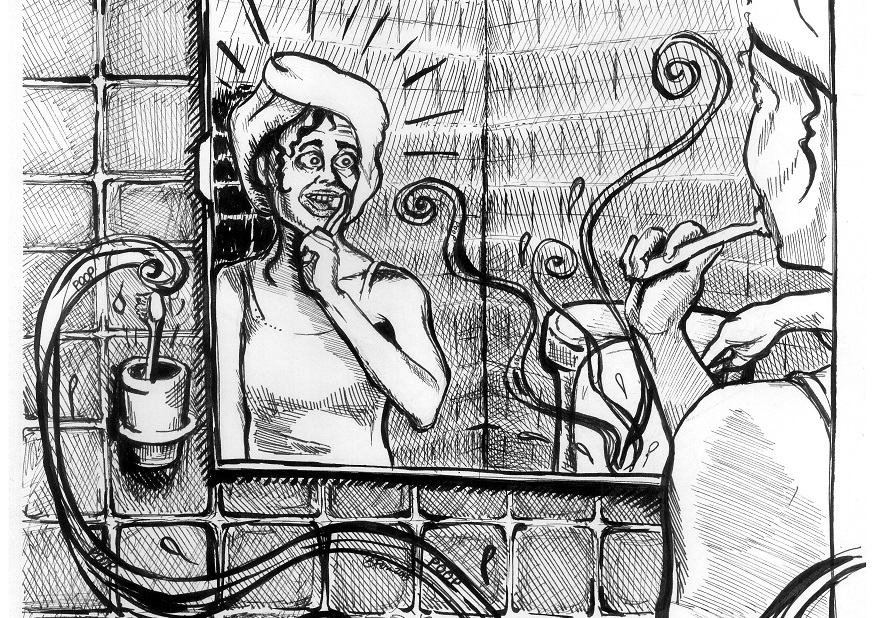Are You Brushing Your Teeth with Fecal Matter?
Did you brush your teeth this morning? Chances are, you were brushing your teeth with feces. This June, the American Society for Microbiology conducted a study on bacteria found on toothbrushes in communal bathrooms. What they discovered was something no person committed to oral hygiene wants to hear: fecal matter.
Researchers said the contamination was most likely the result of multiple people using the bathroom. In other words, it is not only possible that your fecal matter is on your toothbrush, but that of every other person who uses the bathroom as well. This “foreign” poop may contain bacteria, viruses, and parasites that your body is not accustomed to.
Escaping the venturing particles is nearly unavoidable, especially when one’s toothbrush is exposed to the open air. As a person flushes the toilet, particles of feces circulate in the air, eventually making their way to the moist bristles of toothbrushes and other objects within reach.
But their journey doesn’t stop there. The poop particles circulate in the air throughout your home as well, landing on surfaces like countertops, cutting board (if exposed), kitchen sponges and clothes.
Some contaminants researchers found on toothbrushes were Enterobacteriaceae (bacteria related to E. coli, Salmonella, Klebsiella, and Shigella) and Pseudomonas (bacteria found in soil, water, and plants). Both types can be found in gut flora—bacteria in the intestines—and can possibly causes an infection if exposed to high amounts of the two bacteria.
Adam Savage and Jamie Hyneman, hosts of the hit Discovery Channel show MythBusters, discussed a variety of fables related to bathrooms and cleanliness. One myth they focused on is whether or not wet toothbrush bristles create a “collection surface” for airborne bacteria. The men devised an experiment where they brushed their teeth for one month and left one set of brushes exposed in the bathroom, and the other—a control set—in the kitchen.
After one month of brushing and flushing, they brought in Microbiologist Dr. Joanna Angle to test their brushes. She found that both sets of brushes collected fecal particles; it didn’t matter if they were inches from the toilet or several rooms away.
If all of this has you vowing to cover your toothbrush, think again. Scientists warn against covering your toothbrush or placing it in a small container or case as that creates an enclosed, moist environment for bacteria to grow and spread. Researchers also found rinsing a brush with cold water, hot water, and/or mouthwash to be ineffective in decontaminating it.
Currently, researchers have discovered no method that is guaranteed to keep your toothbrush contamination-free. The best we can do is follow a few suggestions from the American Dental Association:





